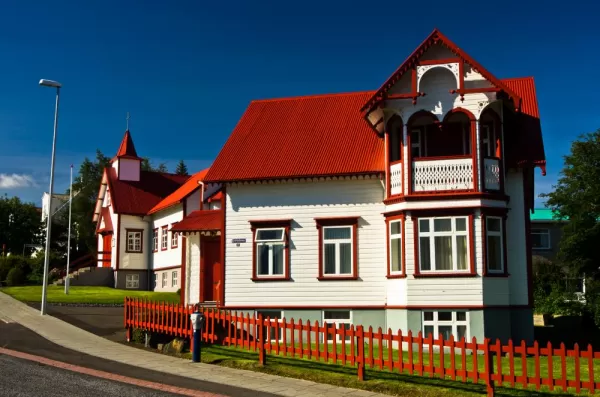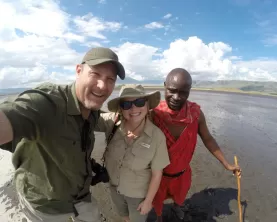The History & Culture of Iceland
The History & Culture of Iceland
Feb 14, 2017

Legends of Iceland’s ancient history date back more than a thousand years, to the year 874, when Ingolfr Arnarson and his wife Hallveig Frodadottir built their homestead at what is now Reykjavik. Prior to this, Irish monks were known to temporarily visit the island, but they never set up any civilizations.
In the following centuries, more of the early settlers arrived, mostly from Norway, and began to establish an agrarian society with a parliamentary government system and even courts and a National Assembly. As the agriculture developed, sheep and cattle were domesticated, and the small society flourished.
Though, the history of Iceland is not without hardship. By the end of the 13th century, Norway had taken control of Iceland, and the following 300 years was marked by extreme struggles. While political power shifted, the primary threats to Iceland during this time came from nature itself. Mt. Hekla, a popular destination even today, was particularly active during this time, resulting in several eruptions in the 14th century that destroyed property and took many lives.
The climate had also gotten worse, making it very difficult to maintain their agriculturally based economy. And on top of this, the Black Plague that ravaged Europe also made its way to Iceland twice, killing about half of the territory’s population.
By the 16th century, Denmark had control of Norway, and the Protestant Reformation arrived by the 1530s. During this time Reykjavik was growing, and in the early 1800s its population had reached over 300.
Gradually, Iceland’s desire for independence grew, and from 1845 to 1875, Iceland peacefully negotiated this deal with the Danish government. One thousand years after it was originally settled, Denmark’s King Frederick VII granted Iceland’s Althing legislative power over the territory. The struggle to establish a completely independent nation continued for over 40 years after this ruling, but in 1918, Iceland was officially a sovereign nation of Europe. Following World War II, Sveinn Bjornsson became Iceland’s first president on June 17, 1944.
Iceland’s Cuisine
Sampling Iceland’s typical cuisine is only for the most daring diners, featuring dishes like hakarl (putrefied shark meat that has been carefully decomposed), hrutspungur (ram’s testicles pickled in whey), and slatur (a dish made of sheep entrails). Of course, if you’re not feeling particularly adventurous with your meal plan, you can enjoy the freshly caught cod, haddock, and salmon, and maybe even try lamb, whale blubber, and puffin meat for something a bit different. Top it off with a delicious plate of skyr for dessert, which is cultured skim milk and served with fresh bilberries (blueberries).
Iceland’s Culture
From art to music to literature and even sports, Iceland has developed a uniquely charming culture. Isolated from the rest of the world, they are a proud and independent nation with an overwhelmingly Celtic/ Norse ancestry. Some of the cultural highlights include:
- Literature: 1955 Nobel Prize winner Halldor Laxness is Iceland’s most recent literary claim to fame, for his novel “Sjálfstætt Folk” (Independent People), but the epic poetry and sagas of romance and mythology date all the way back to the 12th century.
- Art: Painting of the majestic landscapes, silversmithing & wood carving, and other artisan crafts.
- Music: Iceland’s classical music can be heard at the Symphony or the National Theatre & Icelandic Opera. It is also an up and coming center for European pop music.
- Leisure: Chess is a popular pastime that reflects the Viking influence of the region; extreme & active sports like rock climbing, ice fishing, horseback riding, wrestling, and kayaking, just to name a few.
- Religion: The vast majority of all Icelanders are followers of the Lutheran church.
- Language: Icelandic is the primary language, though you will also likely hear German, English, and other Nordic languages.
- Viking culture: The influence of the vikings can be seen throughout Iceland, and there are even sites and museums dedicated to preserving this unique part of the country’s history.














